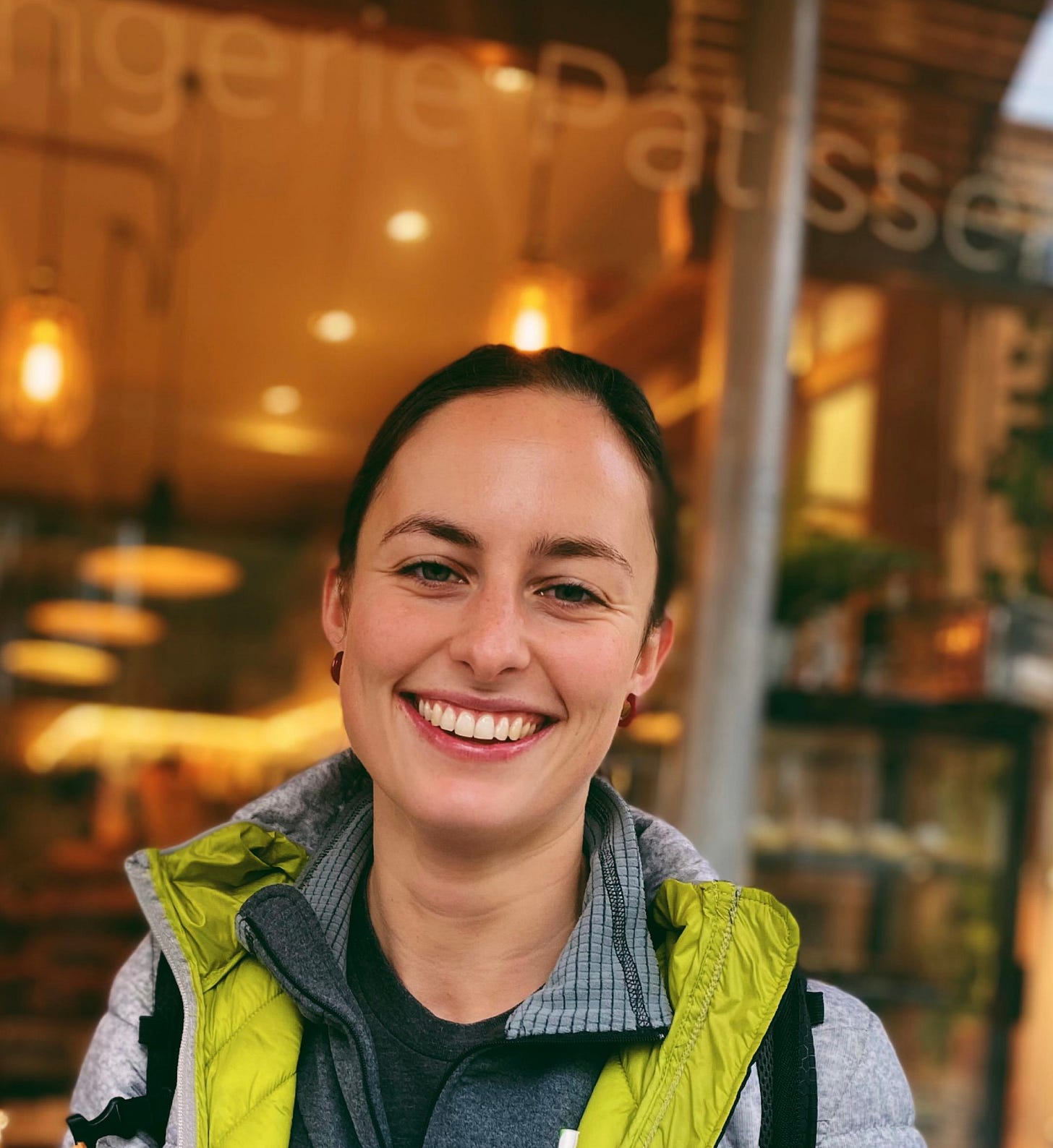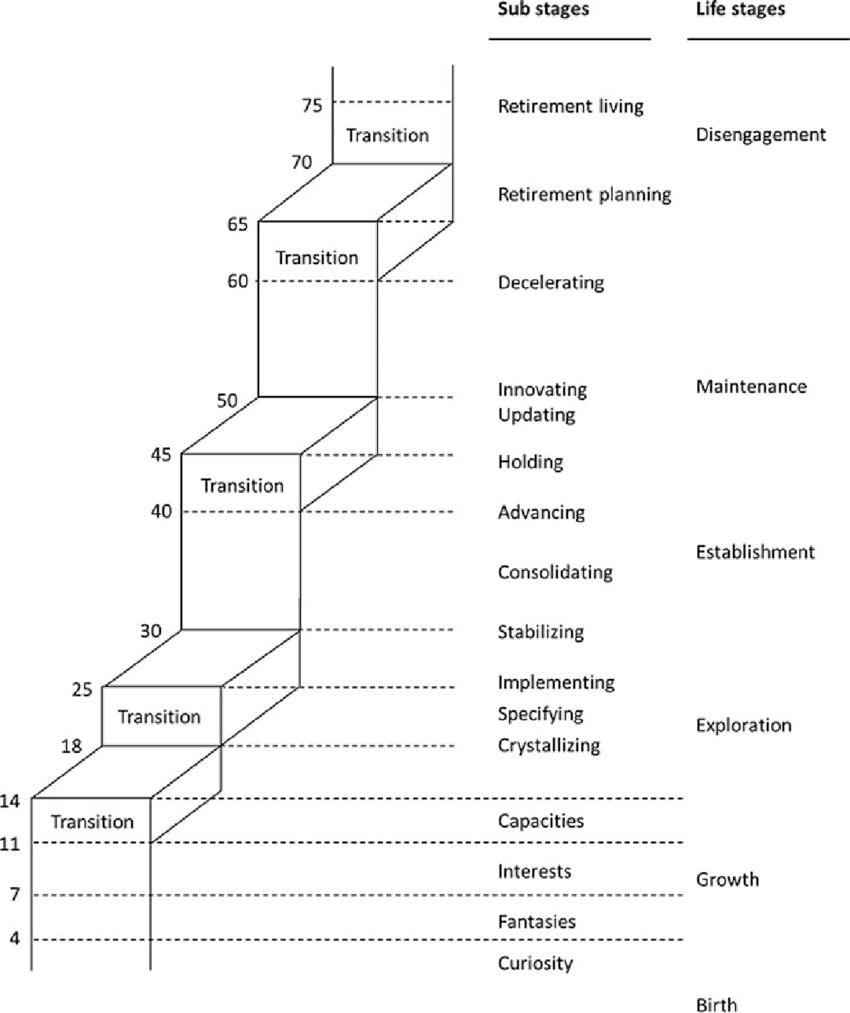#95: Daring to work differently
A Q&A with Growth consultant and amateur artist, Chiara Quadranti
I recently shared a list of wonderful women doing wonderful things with words. This week, we’re meeting one of them.
Chiara Quadranti, the creator of
.Chiara and I are basically professional twins. We first met at Oxford some 13 years ago, where we were studying the same foreign languages degree and volunteering for the student advertising society. Our mutual interest in communication led us to similar graduate roles at the creative agency AKQA before our shared desire for more hands-on work took us into marketing leadership positions at young, fast-growing tech companies. Along the way, we also moved our lives abroad—Chiara to France, me to Sweden—and started Substacks. We haven’t seen each other in person for about 9 years. It’s strange, lovely, life-affirming stuff.
One year ago, Chiara decided to turn off course. She left her established senior marketing role for a voluntary career break, during which she explored everything from charity work and freelancing to podcasting and running an art exhibition. The experience was transformative. And in true Chiara style, she’s willing to share what she’s learned generously and honestly with others.
Tell us about Donald Super and why he’s not so super.
Donald Super was a ‘vocational counsellor’, essentially the OG career coach. This is what he thought a typical career should look like:
A few things caught my eye when I first saw this model. One: life starts with birth and ends with disengagement. Two: curiosities, fantasies and interests die before you’re aged 11. Three: the model is perfectly linear. You explore, focus, optimise, consolidate and decelerate. A beautiful arc. Highly efficient. And boring.
I’ve got nothing against Donald. His model is based on a different value system where success is more closely mapped to financial stability. I would argue that success today also hinges on fulfilment and richness throughout your life, whether it’s “work” or “play”—and for that curiosity is the key, whatever your age.
According to Donald’s model, I’m at the age where I should be stabilising, going into consolidating. This pretty much perfectly describes the opposite of what I’m doing. I proudly made it to the stabilising bit but then decided it was more exciting to go back to the beginning.
What prompted you to go back to the beginning?
The real catalyst was when a career coach asked me if I ever felt like I was being pushed, and I was surprised that my answer was no.
I’d earned myself a senior position, I was well-regarded by my colleagues, I felt useful—I automatically assumed I’d succeeded in hitting my objective. But was I being pushed? When my coach asked me this question, I realised that I was stagnating: I wasn’t being exposed to new things and was often recycling the same knowledge and skills.
Cue the “Exploration phase”. I quit my job and decided to throw myself at things a bit more. My number one goal was diversity. Since then I’ve learnt so much about different types of businesses—from debugging software to Deep Tech climate companies turning CO2 into sustainable fuel. I’ve also tried to see what’s going on outside the startup bubble. I volunteered for a mountaineering charity, supported a local cultural organisation, created art, organised an exhibition, dabbled with podcasting and am now experimenting with writing on Substack.
This year has been about reclaiming that curiosity and staying humble—when you leave your bubble there is so much to learn.

What have you learned so far?
I used to be a chronic overthinker. I found it easy to journal but hard to throw myself into things. Since I’ve got better at working out this muscle, I’ve been able to test things for real and note how they make me feel. I’ll give two examples.
I knew I was drawn to doing something around community so I volunteered for a charity called 82-4000 who help those in financial and social difficulty experience the mountains. We spent 4 days at the magical Hospice du St Bernard and instantly, I felt myself energised—alive and inspired. Later, I helped the same charity raise money for a fundraising event in Paris. Though the impact was arguably higher it just wasn’t the same—I was back at the desk again whilst what I really liked was being on the ground, interacting with people and seeing impact first-hand.
I thought it would be cool to make a living as an artist. So I started trying to get commissions and organised an art exhibition. I soon realised that what I liked—again— was the community aspect but being a professional artist wasn’t really for me. It had sounded romantic but in reality, it took away everything I liked about the process: the joy of experimenting, solving the problem and moving on to the next challenge (rather than repeating a proven formula to churn out commissions).
It worked in the inverse too. There were several things that I ended up doing, unsure if I’d like them, and being proven completely wrong!
You thought you would be judged for not seeking out a linear path towards becoming a Chief Marketing Officer. Is judgment the only reason you kept at it? What other incentives were at play?
No, it wasn’t. A big part of what kept me going was ambition and expectation. I’ve always had a strong drive to prove myself, perhaps linked to being a second-generation immigrant. I wanted to be successful and climbing the career ladder seemed the logical way. All the people around me in my little London bubble were working in well-paid, prestigious jobs in the City—the only way was up.
I should also say I was lucky to work a long time for a company, Onfido, where my dedication and hard work were recognised and rewarded. I felt valued and that’s a nice feeling. So I stayed.
It’s tempting to say I’d do things differently. Temping to tell her to be bolder and follow her gut. But I think we all do things for the right reason at the time; the universe has a way of making things work.
If you could go back and have a chat with your 2018-2020 self, what would you say to her?
It’s tempting to say I’d do things differently. Temping to tell her to be bolder and follow her gut. But I think we all do things for the right reason at the time; the universe has a way of making things work. What I did back then isn’t right for me now but I don’t have any regrets. I’ve learnt a lot from all the things I’ve done—and didn’t do—and I’m glad for where I am now.
If there would be one piece of advice though, it would be to take note of your feelings and talk about them with the people that matter to you. Don’t ignore your instinct when it tells you something’s not quite right (even if now is not quite the right time to change things).
What advice would you give someone torn between linear progression and an abstract yearning for something different?
Well, I guess there’s no free lunch. Are you willing to face the trade-offs? Seeking ‘something different’ often means exploration, uncertainty, lots of time spent, and less money coming in. Is the reward great enough?
If the answer is yes, then go explore! You’ll unlikely wake up one day with an epiphany about your Perfect Job (at least that hasn’t happened to me). It will come to you piece by piece and every exploration will lead you down new avenues. It’s neither about the destination nor the journey; it’s about the process and you have to enjoy the process.
A simple practical exercise: map out all the different things that excite you. For me, it was Community, Outdoors, Creativity and Climate. Pick the one you feel the strongest about and find something you can do quickly and easily to test it.
Now for the questions I ask every guest: how can the tech and non-profit sectors come closer together?
“Can capitalism be non-extractive? Can a consumer goods company end overconsumption? While the challenges we face are daunting, they also provide an incredible opportunity to be part of the solution, stand with Earth, and help provide an example for business that can reshape systems, cultures and our relationship with this world for the better.” — Patagonia, The Next 50 Years
Patagonia are perhaps an obvious example, but truly inspiring in the way they acknowledge the tension in the line they tread (mixing activism and capitalism) and go beyond words to do something about it. It’s less about being the shining example of integrity but taking action that has impact.
What’s an unusual opinion or uncommon belief you hold?
I believe that humans are intrinsically connected to the landscapes that surround them and that different people are attracted to the energy of different geologies and terrains; that’s where you feel most at home. Mine is mossy, green and granitic. (Substack article on this coming soon…)
Which three books or other media have impacted you most and why?
Climbing Iran (documentary) — about Iran’s only female professional rock climber Nasim Eshqi. Committed to “changing things little by little”, Nasim brings other young women to the rock walls outside Tehran, teaching them how to climb and gain independence. There was one sentence that stuck with me: “You can be useful your whole life, and that will never be enough.”
In the Cairngorms (poetry) — Currently reading this scintillating, little-known collection of poems that captures life and landscapes. Sharp, vibrant and just.
Isolation Journals by Suleika Jaouad (Substack) — The first Substack I subscribed to and which inspired me to write again. I am mesmerised by the pared-back elegance of Suleika’s words.
More questions for Chiara? Find her on LinkedIn and subscribe for free to
.Thanks so much for reading,
Lauren






AKQA buddies! Loved this Lauren and Chiara! 💕